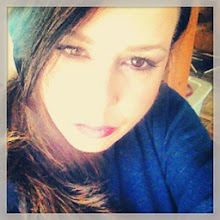
It’s true—the bigger the space, the more one will accumulate. It'll be in one of Fresno's wealthiest neighborhoods that I'll attend my first estate sale. When my mother and I enter the mansion I smell urine, perhaps death.
People are strewing amongst the pockets of the house, lingering around the baby grand piano, in the closets inside the bedrooms; any one of these people leaning against the kitchen counter could be the owner this house, but the owner is dead. I become agitated by their ease, the way they lift their glasses of ice tea to their lips, casually engaged in conversation, the glass picture of tea at the edge of the counter.
I’m told most everything in the house is for sale and when I find something, make an offer. It's difficult to focus on one thing when ribbons of people are streaming from one room to the next. Should I follow the pack of women to the bedroom where the king-size bed is adorned with handbags and belts or to the living room that's off the kitchen where framed artwork is stacked against the walls like playing cards? Something of great value hides amongst us.
In the bedroom women try on fur coats while others pull at the stacks of sweaters, priced at ten dollars. I can’t wear a dead woman’s sweater, can I? I move from room to room, trying to ignore that my skin is beginning to feel sticky. I head towards the kitchen again where I find more people, new people, drinking ice tea and carrying on conversation. On the shelf behind two shutter doors a row of cookbooks has collapsed. Somebody has already picked through what was once an immaculate collection. I identify a worn copy of “The Joy of Cooking” with its red and white thatch-style design. I imagine the woman of the house cooking recipes for her family. Now she’s dead. Her cooking days are over. My mother joins me in the kitchen. My mother is naturally stimulated by the entire sale. I expect her to sniff out the cashmere the others overlooked, or the gold bangles in a box marked, “Everything $5.” My mother slinks around like a cat, barely disturbing a thing, and over to a of row glass and stoneware. She flips items over to read inscriptions and signatures. She’s no beginner at this. I stand frozen, as if I just got caught breaking into someone’s home.
“I feel like this woman is going to come home from shopping and say, ‘What the hell is everyone doing in my house! Who the hell are all you people?’”
My mother thinks I’m being humorous, and maybe I am. I can’t tell right now. I follow her back to the master bedroom. I stand as my mother holds up sweaters to her body. I talk my mother out of the green sweater.
“But I like the color.” She smiles and holds it up in front of her.
I tell her she doesn’t have to buy something, just because we’re here. I point out how there’s a small tear near the neckline. I force the sweater out of her hand and back onto the sloppy rainbow-colored stack of sweaters. We decide to take one last look in the living room. The hums of voices begin to accelerate with the great flux of newcomers and there’s a great stir at the makeshift cashier area in the dining room, adjacent to the living room. By unexplained forces, we end up there.
My mother shows me a gold watch. I strain to see it in the dark living room. Why won’t they turn on any lights in here? Within seconds, she’s struggling to fasten the clasp, mind you, in the dark and shadowy living room. She decides to get it, even though they can’t seem to put it on. They tell her, “All watches are knock-offs and ten dollars.” She hands the woman sitting in front of the cash box at the card table a ten-dollar bill. Finally, we leave.
In the car, my mother hands me the watch. The sunlight is shinning on it now. The chunky-and-link-styled watch is actually quite beautiful. “Flip it over, Pilar. Inside there is an inscription, read it to me. I think it says 14K.” At that moment, once I realized the weight of the watch, my mother had found herself a deal.
“Yes, mom, it says 14K!” I hand her the watch, trying to fight back jealousy.
“I knew it!” Then, right there, appeared the glow. I’ve seen this particular glow several times in my lifetime now, typically when a new piece of jewelry touches her body. Silver does the trick, and for a while, she went through a pearl phase, but she’ll always melt for gold. She stops the car and asks me to help her put it on. We watch it shine on her left wrist, as she turns right to take us out of the neighborhood. “Now that’s a real estate sale! A lot of people say, ESTATE SALE, on their signs, but that’s just to lure them in. I begin to cry.
“I don’t ever want to go to another estate sale again!” I say, weeping even louder.
“Look at all that stuff she had…died of kidney failure…none of her wealth could save her…she left all this behind. Why do we have to accumulate so much stuff?” I don’t know where I’m going with all of this. I am spitting out strange sentences between my sobbing.
“I think the estate sale forced you to come to terms with your mortality,” my mother says.
My mother likes to stay on the surface of things. This seems like a profound and deep statement. I have no response for her. I continue crying.
We talk about the value of things…faith and how the real investments are the ones that are not often seen. The gold watch catches the sun, everywhere, I see sparkles.





